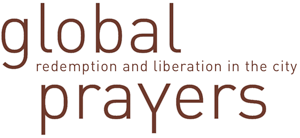Within Urban Studies, most of the debates on new religious communities focus predominantly on the political character of these movements. Yet, these discussions are strongly coined by theories of fundamentalism and often miss the enormous scope of the relationship between the political and the religious in cities. Within the thematic cluster Communities, global prayers intends to broaden this debate by, firstly, directing its focus to the various and differentiated forms in which the relationship between state and religious community is played out in urban space. Secondly, by placing an emphasis on the local micro-politics, in which religious communities act and intervene as civil society actors among other social actors. And, thirdly, it explores the heterogeneous forms of integrating economy, politics and religion at the urban level.
The political and societal engagement of new religious communities and their entanglements with the state are analyzed from different perspectives in the following case studies: Comparing London and Lagos, Richard Burgess has concentrated his research on the transnationally operating Redeemed Christian Church of God. In Berlin, the artist Katja Eydel deploys her photographic-documentary methods to explore the visual patterns of social engagements of new religious communities. In so doing, she approaches one of the most important aspects of how religious communities build their power foundations. The construction of „Aura‟ through political and religious actors is the subject of interest of artist Paola Yacoub on the example of Beirut. She follows the question of what becomes visible once the city is perceived as a space of religious ostentation.
The entanglements of politics, economy and religion, which appear to be a fundamental feature of new urban religions, also play a central role in the research projects of Ayse Cavdar - analyzing a religious Gated Community in Istanbul - and Joseph Rostum - exploring the religious building investments in Beirut. Lastly, the documentary filmmaker Sandra Schäfer embarks on an artistic research project that explores the meaning of the term „street politics“ (Asef Bayat) during the Iranian Revolution in Tehran, which became a formative element for the political character of religious movements in recent decades.
Tamam Görüsürüz. A film project by Angelica Levi, Gülay Akin, and Brigitta Kuster.
